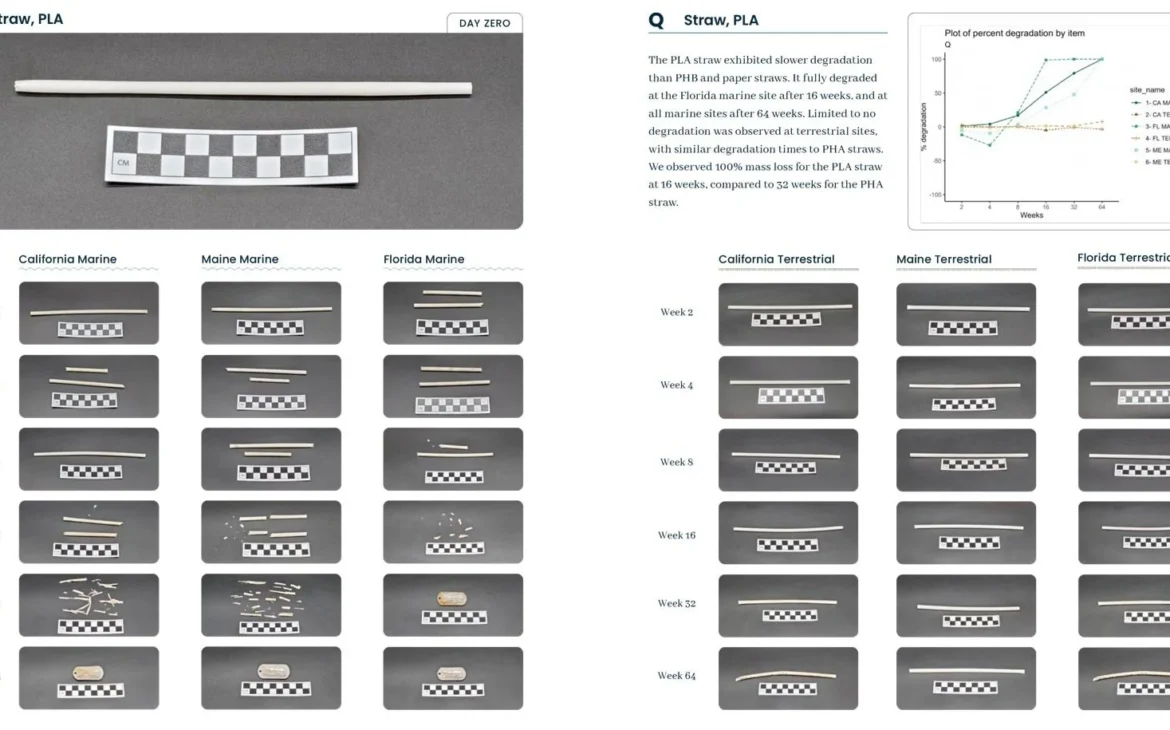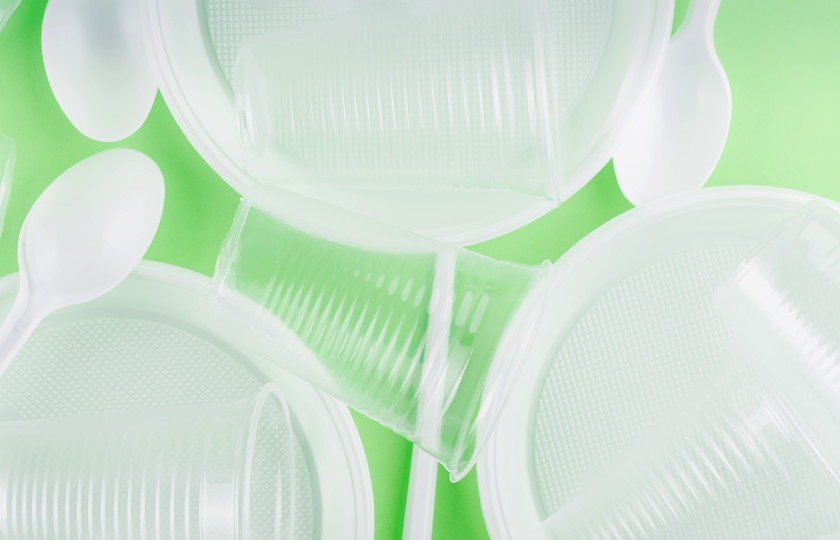A recent study by 5 Gyres Research Institute – a non-profit organisation based in California – has raised concerns about the effectiveness of bioplastic in tackling plastic pollution.
The study discovered that many bioplastics degrade much slower than initially believed, proving that they are “not a silver bullet solution” for the world’s plastic pollution crisis.
Researchers tested 22 types of single-use packaging degradation in soil and sea for 64 weeks on sites in Florida, California, and Maine. They found that while bioplastics, made from corn starch or sugar cane, degraded faster than traditional fossil-derived plastics, some degraded much slower.
Straws made from polylactic acid (PLA), a popular bioplastic, decomposed in the ocean but remained mostly intact when buried underground for over a year. Other common types of bioplastic packaging, like forks, bottles, and tampon applicators, showed little or no signs of degradation after 64 weeks in soil.

“We need targeted solutions that address each sector of plastic use in society, from textiles and tyres to agriculture and electronics,” said Lisa Erdle, director of science and innovation at 5 Gyres.
The study reveals that while bioplastics offer opportunities for upstream innovations across all sectors, they are not a one-size-fits-all solution.
Marcus Eriksen, co-founder and researcher at 5 Gyres, believes there is a need for greater transparency and clearer messaging in how disposable products are used and marketed.
He said that “biodegradable” or “compostable” is not clear enough for manufacturers or consumers.
“Our research shows that real-world factors greatly impact what happens to a product if it ends up in the environment,” explained Eriksen. “An item may be advertised as biodegradable or compostable, but under what conditions? We need greater transparency and truth in advertising the things we buy.”
While bioplastics offer certain advantages over traditional plastics, there’s still a need for research and development. A combination of innovations is needed to address the plastic pollution crisis in our society.



